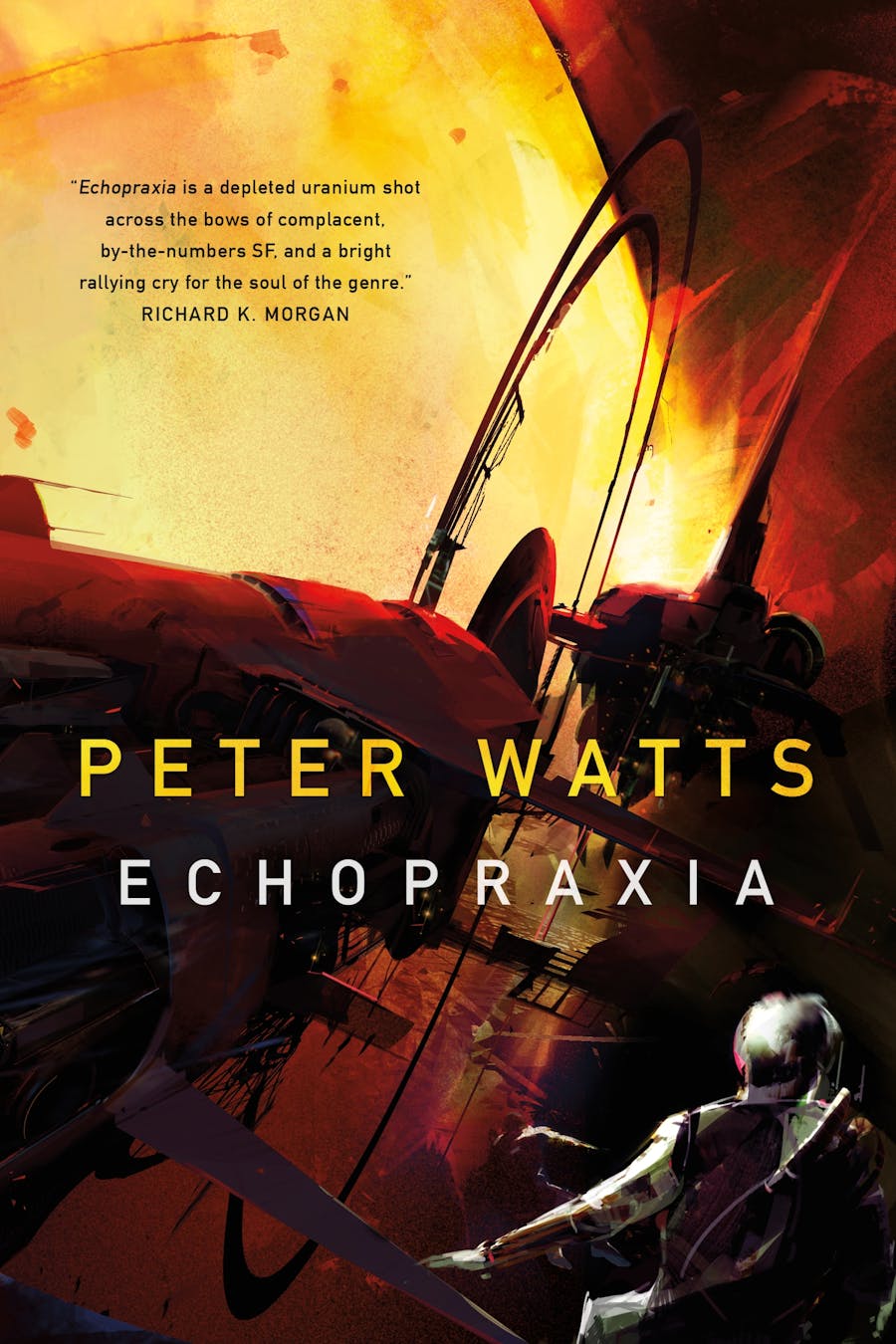Echopraxia

Review
Echopraxia, by , is the second book in the Firefall series, unfolding at roughly the same time as Blindsight. It follows parasitologist Daniel Brüks, who gets unwillingly dragged into a conflict between multiple transhuman factions, travels to the Icarus station orbiting the sun, and eventually back to Earth.
The world Watts built in Blindsight was enthralling, packed with scientific and philosophical arguments about consciousness. I loved it. Echopraxia expands on that exceptional worldbuilding while shifting its focus to themes of god, godhood, free will, and humanity’s place in a transhuman world. It’s a fantastic sequel—possibly even better than the first.
The major characters are:
-
Daniel Brüks, a parasitologist and baseline human who has chosen not to get any enhancements.
-
Jim Keaton, a human soldier and the father of Siri Keaton from Blindsight.
-
Rakshi Sengupta, an augmented human serving as a backup pilot for the ship.
-
The Bicamerals, a hivemind of people who have modified their brains to discover scientific advancements through seemingly religious means. Their interpreter is a slightly modified human, Lianna Lutterodt.
-
Valerie, a vampire who escaped from an academic lab, on a mission to free her people. She travels with her four zombie soldiers.
-
Portia, an alien computer-slime mold sent by Rorschach to Icarus.
The novel is full of Christian imagery, reinforcing its themes of transcendence and digital theology:
-
Valerie is a Moses figure, trying to free her people from slavery. Her first appearance is in the desert, under a pillar of flame (the Bicamerals’ tornado seen through night-vision goggles).
-
Vampires have a “crucifix glitch” that is used to control them.
-
The Bicamerals’ ship is named the Crown of Thorns. The Rorschach from Blindsight is shaped like a crown of thorns.
-
Siri suffers a stigmata-like wound in his palm, inflicted by the vampire Jukka Sarasti.
-
“Heaven” exists as a virtual reality world that people can retreat to.
-
The idea of resurrection—or at least some form of life continuing after death—appears repeatedly, from the snake Brüks samples in the desert to the zombies, and even Brüks himself after he is infected by Portia.
Parasites and biology are also central themes. Brüks studies parasites, yet in many ways, he is one himself—the weakest member of the group, surviving by staying out of the way. Humans, too, are like parasites, struggling to exist in a world dominated by transhumans. Portia, the alien intelligence sent by Rorschach, traps and studies the crew just as Brüks studies animals back in Oregon. Portia is a parasite in its own right, surviving only within hosts like Icarus or the Crown of Thorns.
Loss is another major theme. Brüks lost his wife to the virtual world of “heaven.” Keaton lost his wife the same way—and his son Siri to the mission in Blindsight. Sengupta lost her wife to a virus that Brüks’s simulations failed to catch before it killed thousands. Each character is shaped by their losses and, in the end, undone by what they do in response to them.
Echopraxia received mixed reviews compared to Blindsight, which was almost universally praised. Many found it even more confusing, largely because the narrator, Brüks, is the character who understands the least about what’s going on. But while his perspective is limited, I didn’t find the plot difficult to follow—everything is revealed and explained if you pay attention. So far, Echopraxia is my favorite read of the year.